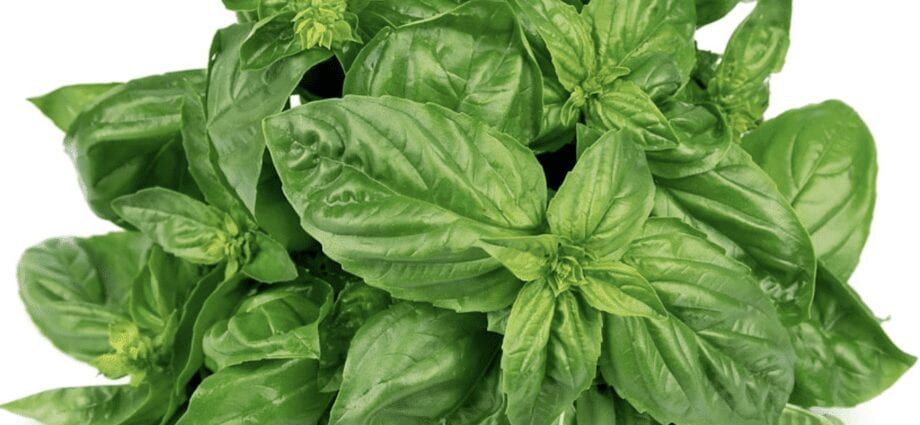Contents
Description
Basil is a spicy herb that is loved in Europe, the Caucasus, and Asia. We will tell you how this seasoning is useful, and how to prepare a refreshing drink and a delicious preparation for the winter with it
Basil is especially popular in the national cuisine of Transcaucasia, as well as Central Asia. There the plant is called Reikhan, Regan, Rean, Raykhon. In total, there are about 70 types of basil. The most famous among them are green, purple and lemon basil, or Thai.
The leaves and stems of the plant contain essential oils that give the basil a pleasant aroma. Basil opens up gradually in dishes – first it gives a bitterness, and then a sweetish aftertaste.
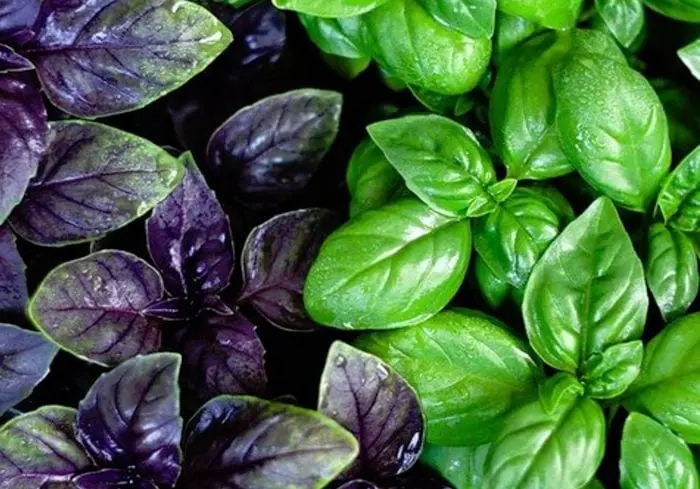
Basil leaves are used both as an independent snack and as a seasoning for salads and soups. Basil goes well with meat – lamb, beef, poultry, and vegetables (especially tomatoes). It is also added to marinades and pickles. Some countries use basil seeds in drinks, salads and soups. Various sauces are also made from basil. The most popular basil sauce is pesto, which is prepared with the addition of pine nuts, parmesan, and copious amounts of olive oil.
In summer, basil, especially purple, is used to prepare various drinks – basil lemonade, basil compote, and tea with basil is also brewed. Dark leaves also well set off the taste of desserts.
Composition and calorie content
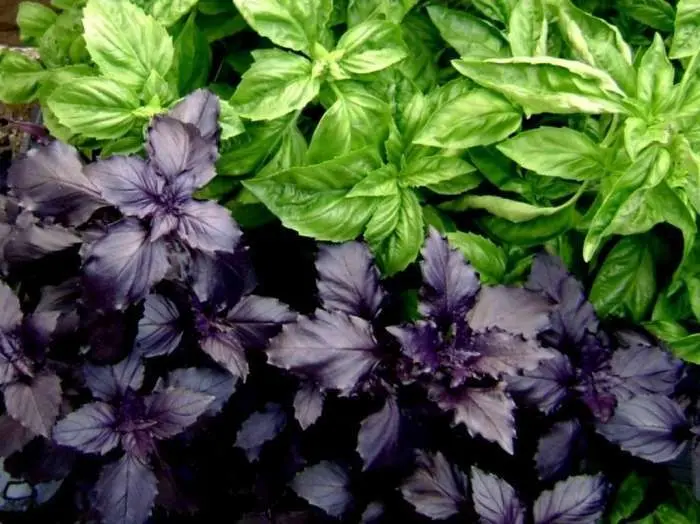
- Caloric content 23 kcal
- Proteins 3.15 g
- Fat 0.64 g
- Carbohydrates 1.05 g
Of the fat-soluble vitamins, basil contains A, beta-carotene, E, and K. Of the water-soluble vitamins C, B1, B2, B3 (PP), B4, B5, B6, and B9 are present.
Benefits of basil
Basil contains a lot of vitamins – A, C, B2, PP, carotene, phytoncides, rutin. Thanks to such a component as eugenol, basil has a powerful antibacterial effect, and also has an antispasmodic and tonic effect that can be compared with aspirin or ibuprofen.
Basil extract is used to heal wounds and treat acne. The content of vitamin A makes basil useful for acute vision. There are also omega-3 fatty acids in these greens. The positive effect of basil on immunity and effectiveness in the prevention of cancer has also been noticed.
What else is basil good for? The plant stimulates the appetite well. Cooled broth can be used to relieve bleeding gums. Basil is also used as a sedative – instead of chamomile tea, you can brew a decoction of basil.
Harm and contraindications
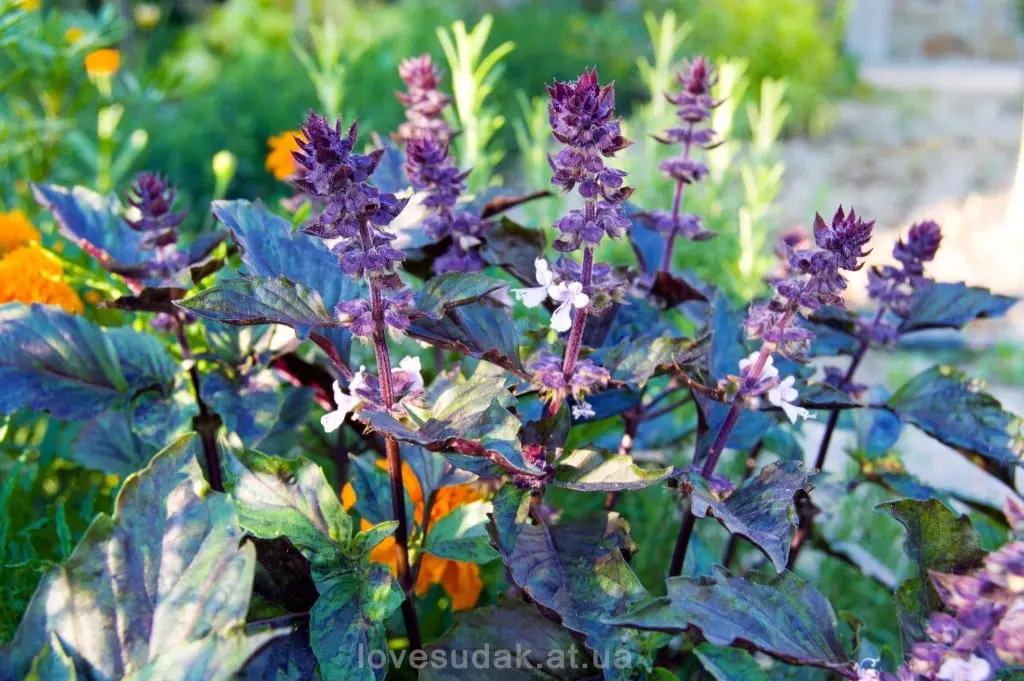
The basil plant contains mercury compounds that can be harmful to health in large quantities. Pregnant women, people with diseases of the cardiovascular system, as well as patients with epilepsy and diabetes should be especially careful.
Children under the age of seven should also not eat the plant. Basil is irritating to the gastrointestinal tract and can lead to poisoning. Individual plant intolerance cannot be ruled out.
Basil lemonade
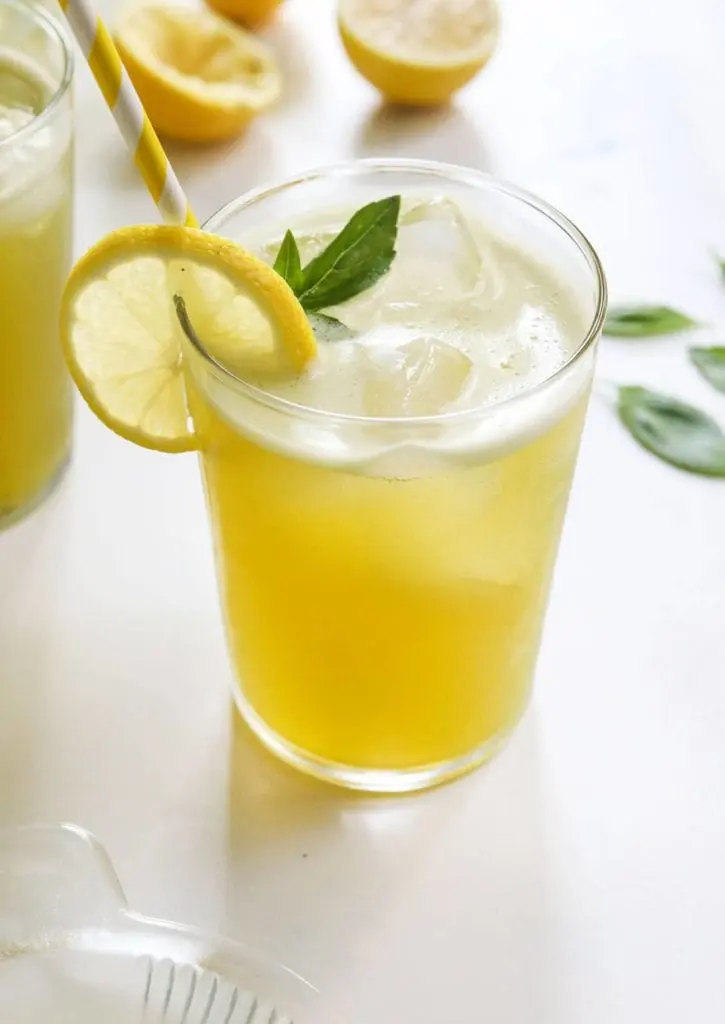
A drink perfect for a hot summer day is lemonade with basil and mint.
To make a basil drink, we need 2 limes (or 2 lemons), a bunch of basil and mint, and cane sugar.
- Pour water into a saucepan and put on fire. Add the cane sugar. The water should not boil.
- Squeeze the juice of 2 limes into a glass. Basil and mint need to be crushed a little. Add freshly squeezed juice and herbs to a pot of water.
- Remove the pan from heat and cool the solution.
- Pour the drink into a jug and add ice cubes. The lemonade is ready!










